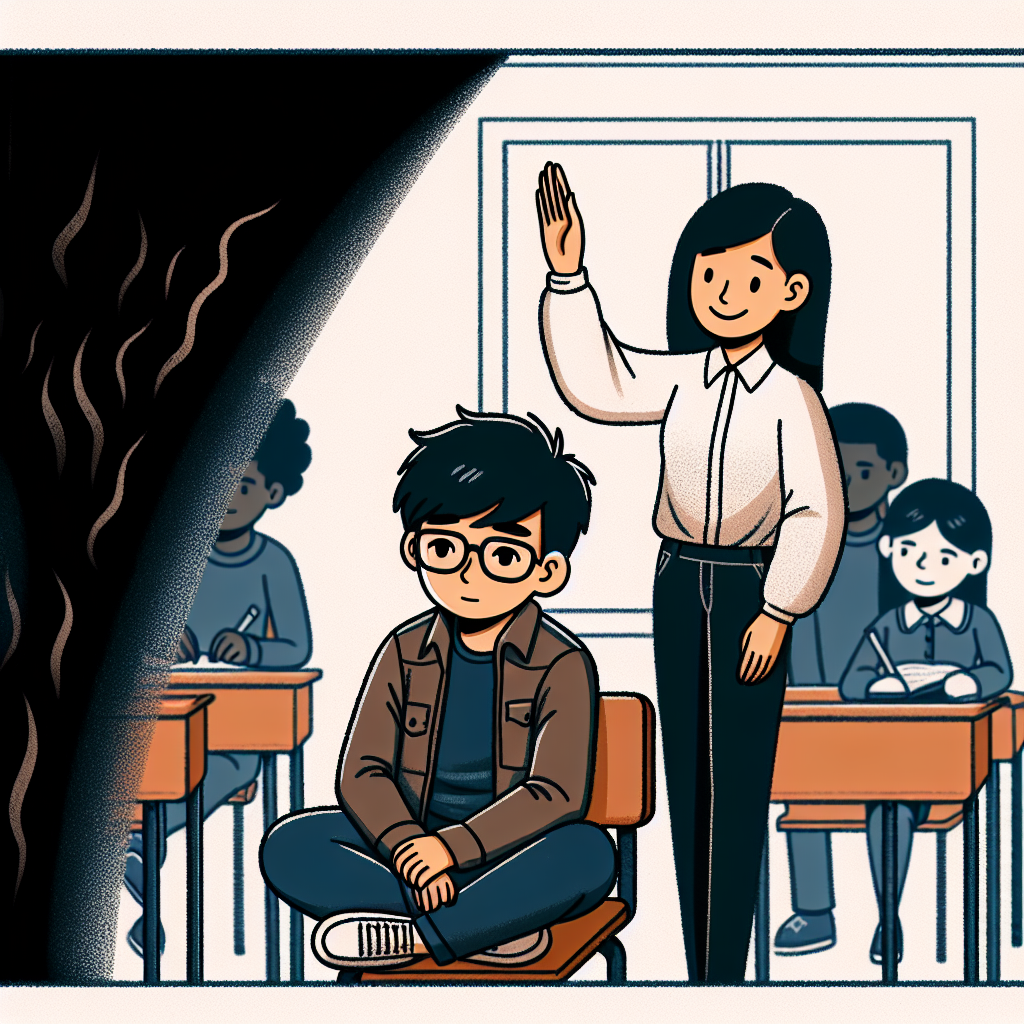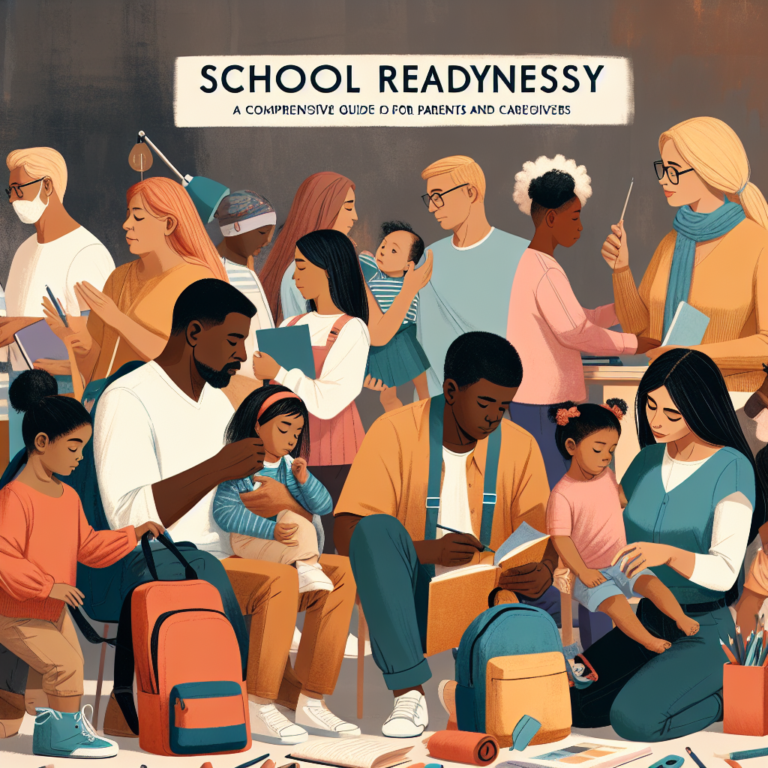
Introduction
Imagine stepping into a classroom, eyes filled with uncertainty, palms sweaty, heart racing. For many students, this is an all-too-familiar scenario, often depicting the struggle of anxiety in the academic world. However, what if I told you that the road from anxiety to academic achievement is paved with supportive guidance? In recent years, counseling has emerged as a beacon of hope for students grappling with anxiety, helping them transform their academic journeys. In this article, we will explore “From Anxiety to Academic Achievement: The Positive Impact of Counseling on Students,” illuminating its relevance and importance in today’s educational landscape.
Understanding the Landscape of Student Anxiety
The Prevalence of Anxiety Among Students
Anxiety disorders rank among the most common mental health issues affecting students. According to the National Institute of Mental Health, about 31.9% of adolescents aged 13-18 experience an anxiety disorder at some point. This staggering statistic reveals a pressing issue within educational institutions that cannot be ignored.
Table 1: Statistics on Student Anxiety Disorders
| Type of Anxiety Disorder | Prevalence Among Students |
|---|---|
| Generalized Anxiety Disorder | 6.1% |
| Social Anxiety Disorder | 9.1% |
| Panic Disorder | 2.7% |
| Specific Phobias | 19.3% |
The Academic Impact of Anxiety
Anxiety doesn’t just affect emotional well-being; it permeates academic performance. Research indicates that anxious students often receive lower grades, have poorer task performance, and may even withdraw from school altogether. The link between anxiety and academic achievement is concrete, making it crucial for institutions to provide adequate support through effective counseling.
The Role of Counseling in Alleviating Anxiety
Types of Counseling Services Offered
Counseling isn’t a one-size-fits-all solution; various methods exist tailored to meet individual students’ needs. The most common counseling services include:
- Individual Therapy: One-on-one sessions that offer personalized guidance.
- Group Therapy: Facilitated discussions where students can share experiences and techniques for managing anxiety.
- Crisis Counseling: Immediate support for students experiencing acute anxiety episodes or crises.
Success Stories and Case Studies
Case Study 1: Jessica’s Journey
Jessica, a sophomore at a local university, struggled with debilitating anxiety that hindered her academic performance. With the assistance of a campus counselor, she engaged in cognitive-behavioral therapy (CBT). Over time, Jessica learned coping mechanisms and reframed her anxious thoughts, ultimately leading her to achieve a 3.8 GPA that semester. Her story exemplifies “From Anxiety to Academic Achievement: The Positive Impact of Counseling on Students.”
Analysis: Jessica’s case illustrates how personalized counseling, particularly CBT, can effectively address anxiety and foster academic success.
Strategies That Counseling Provides
Coping Mechanisms
Counseling equips students with essential coping strategies, enabling them to manage anxiety effectively. Techniques such as mindfulness, relaxation exercises, and breathing techniques serve as immediate tools during stressful situations.
Chart 1: Coping Strategies from Counseling
| Strategy | Description | Effectiveness |
|---|---|---|
| Mindfulness | Grounding techniques to stay present | High |
| Deep Breathing Exercises | Reduces physiological symptoms of anxiety | Moderate |
| Journaling | Encourages emotional expression and clarity | High |
Enhanced Self-Esteem and Confidence
Counseling aims to empower students, enhancing their self-esteem and fostering resilience. As students learn to manage their anxiety, they build confidence in their academic abilities, leading to improved performance and higher achievement levels.
The Need for Institutional Support
Training Educators
Educators also play a critical role in helping students navigate anxiety. Training teachers to recognize signs of anxiety and providing them with tools to support their students can make a difference. Workshops on mental health awareness and collaboration with counselors can further create a supportive academic environment.
Creating a Safe and Open Atmosphere
Institutions can foster a culture that normalizes mental health discussions. Awareness campaigns and peer-support groups can help diminish the stigma associated with seeking counseling, encouraging students to take the first step.
Conclusion: From Anxiety to Achievement
In closing, the transformative journey "From Anxiety to Academic Achievement: The Positive Impact of Counseling on Students" is not just a battle against mental health challenges; it is a pathway to empowerment and success. The integration of counseling into the academic framework cultivates an environment where students can thrive, overcome anxiety, and realize their full potential. It’s time for educational institutions to recognize this essential resource and create a supportive framework that values mental well-being alongside academic achievement.
Key Takeaways
- Anxiety is prevalent among students, impacting their academic success.
- Counseling offers various tailored services to help manage anxiety and foster achievement.
- Real-life case studies illustrate the effectiveness of counseling.
- Institutional support is crucial for creating an environment conducive to mental health and academic success.
FAQs
1. How does counseling help students with anxiety?
Counseling provides personalized strategies to manage anxiety, promotes coping mechanisms, and fosters a supportive environment for students to express their concerns.
2. What types of therapy are most effective for anxiety in students?
Cognitive-behavioral therapy (CBT) is particularly effective as it helps change negative thought patterns. Other methods like mindfulness and group therapy can also be beneficial.
3. What can schools do to support students with anxiety?
Schools can implement mental health awareness programs, train educators on recognizing anxiety symptoms, and provide easy access to counseling services.
4. How can students advocate for counseling services?
Students can form advocacy groups, engage in discussions with school administration, and initiate awareness campaigns to promote mental health and counseling services.
5. Are there specific resources for students struggling with anxiety?
Yes, many schools provide student counseling centers, hotlines, and online resources dedicated to mental health support.
From navigating the complexities of anxiety to flourishing in academic settings, the journey is filled with challenges and opportunities. Let us embrace counseling as an essential ally on the path from anxiety to academic achievement, equipping students with the tools they need to succeed in both their educational and personal lives.















